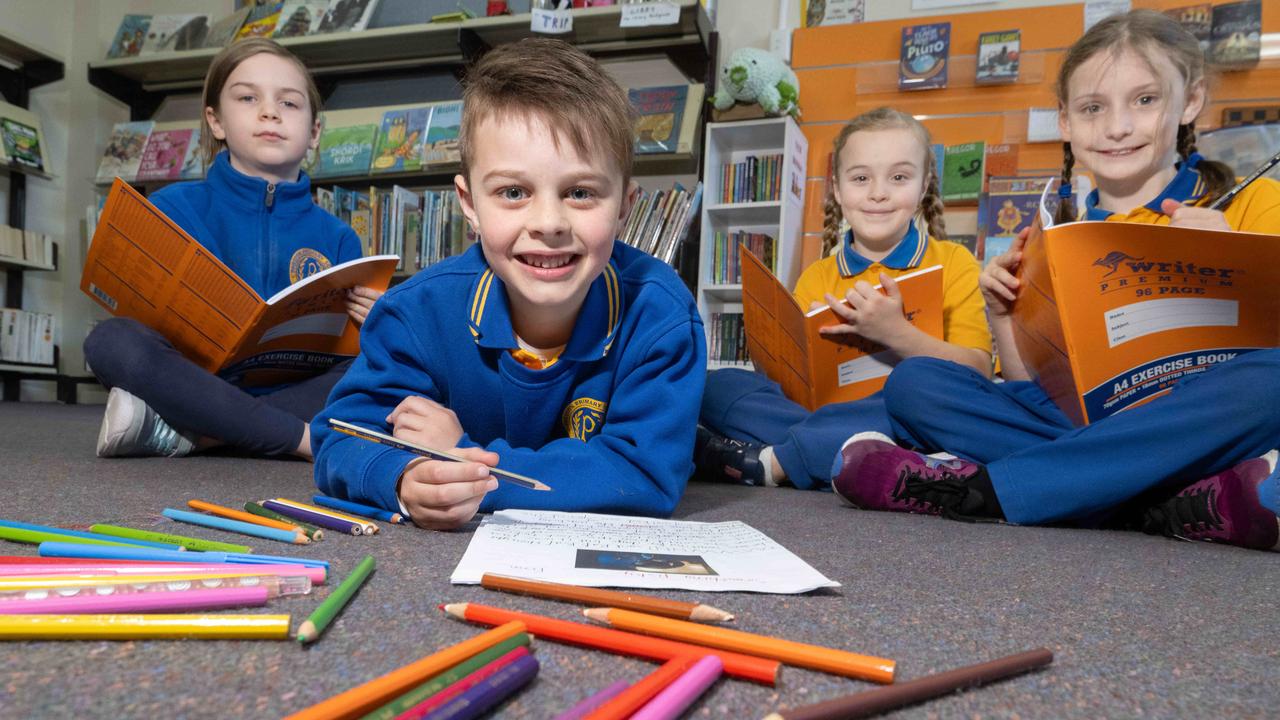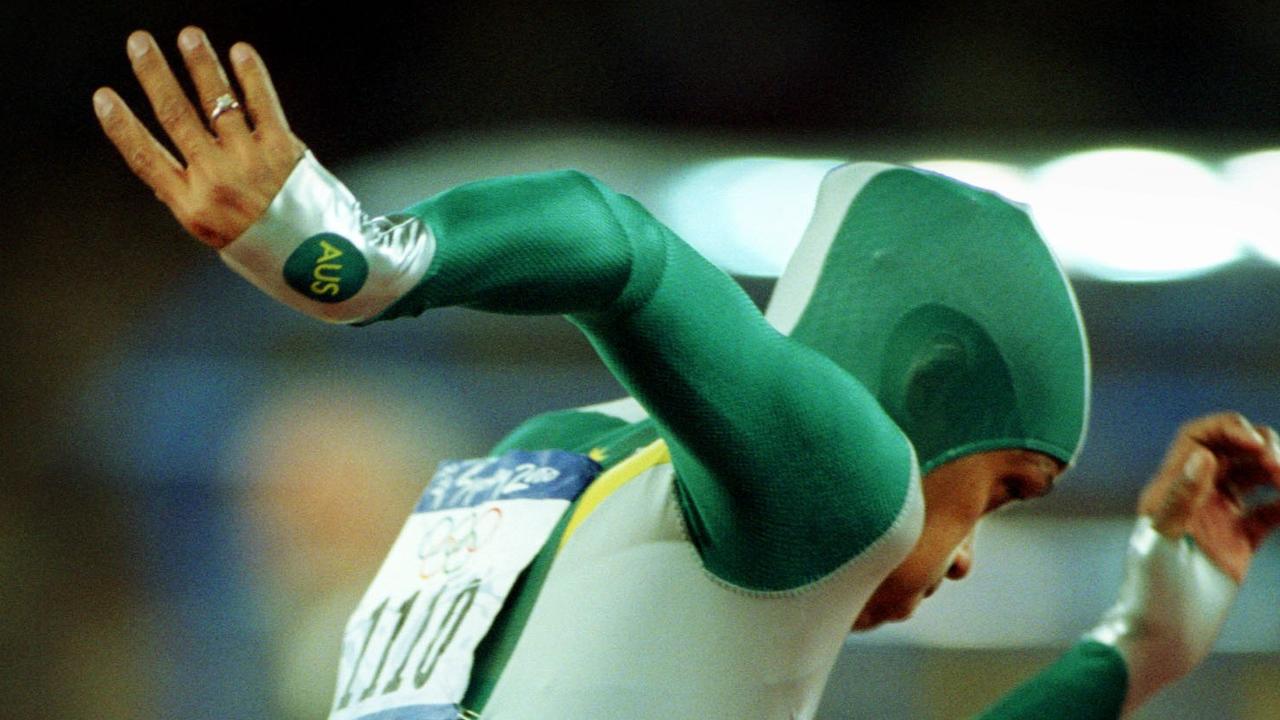Australia’s most popular kids’ books of the past decade revealed
Australian kids love funny, naughty and cheeky books. Is your favourite on the list of top 50 most popular children’s books of the past decade?
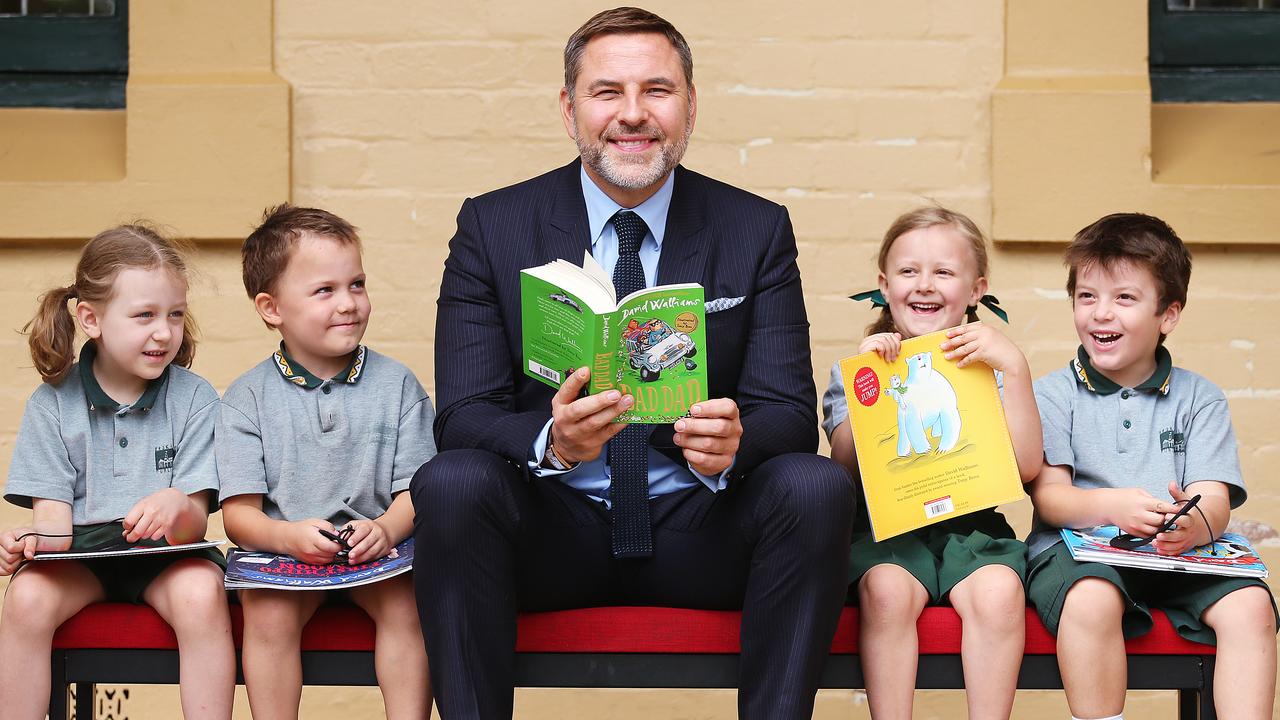
READING LEVEL: GREEN
Funny stories rule with Aussie kids, an exclusive* roll of honour of children’s books shows.
The top 50 most popular kids’ books of the past decade have been revealed – and they are dominated by laugh-out-loud, cheeky reads.
FIND THE SHORT STORY COMPETITION ENTRY FORM HERE
Aussie author Andy Griffiths’ Treehouse series occupies the top six spots, with combined sales of more than 3.2 million books in Australia.
The Wimpy Kid series by US author Jeff Kinney, Australian comedian Anh Doh’s Weirdo series and three books by British comedian and author David Walliams also make the list, alongside JK Rowling’s Harry Potter series.
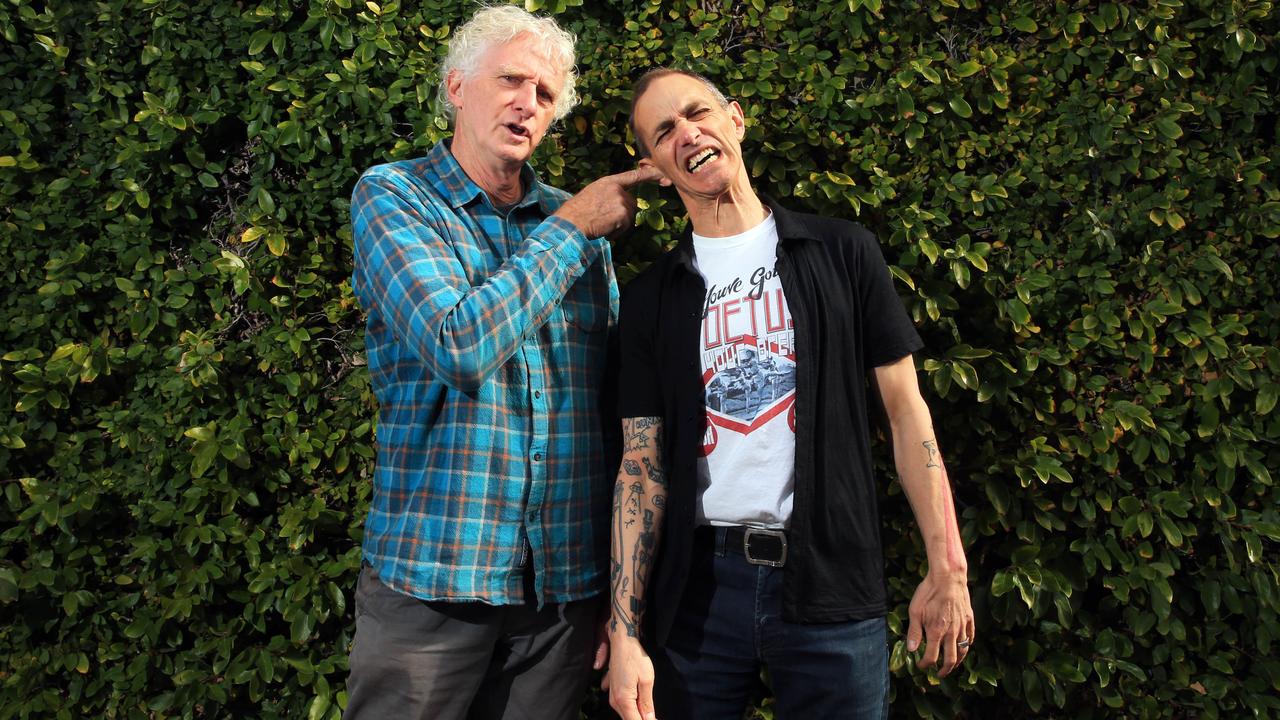
Griffiths, who is working on his 12th Treehouse book with illustrator Terry Denton, said the list, compiled by Nielsen BookScan, showed humour was key to getting kids into reading, especially amid the Covid-19 gloom.
“Even when you’re reading apparently silly and nonsensical* stuff your reading skills are getting better with every book that you finish,” he said.
Walliams, who has The World’s Worst Children, Gangsta Granny and Bad Dad on the list, said he was not surprised by the popularity of funny children’s books in Australia because Aussies were “well known for their naughty sense of humour”.
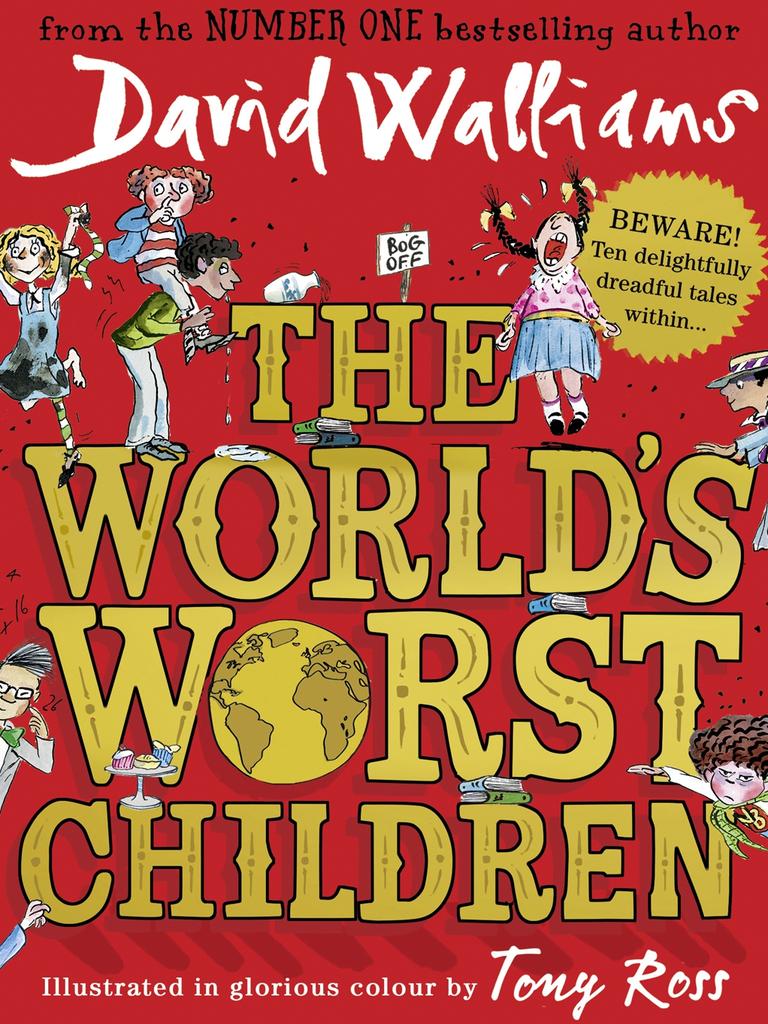
Griffiths and Walliams agreed funny books had another important role to play beyond encouraging kids to read.
“Life can be tough, and we all need to laugh as much as possible,” Walliams said. “Comedy bonds us together and makes us see the world upside down. Funny books make kids happy.”
Kinney, whose 15 Diary of a Wimpy Kid books make the list with almost 4.2 million combined sales, said “the more you read, the better your life will be”.
“Readers are always the most interesting people and they’re curious about the world,” he said. “And any types of books will do: nonfiction, fantasy, adventure, humour.
“Even better, the books you read can inspire you to tell your own stories. And everyone’s story deserves to be heard!”
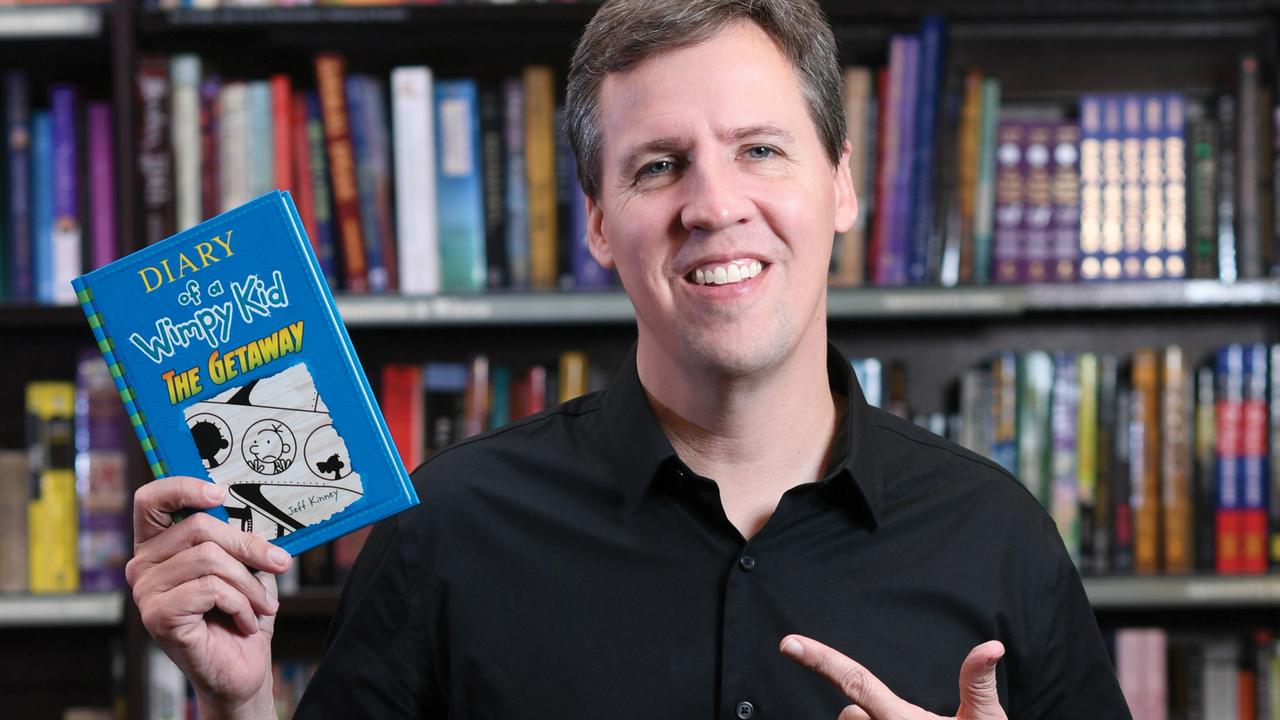
The authors also urged children to look to the funny experiences in their own lives to write their own silly stories for the 2022 Kids News Short Story Competition.
“If something makes you laugh there is a good chance it will make others laugh too,” Walliams said.
“When writing a funny story, you can let your imagination run wild. Be as silly and surreal* as you can.”
Griffiths recommended kids use “the ordinary, everyday things going on around them as a prime source of humour and story ideas” rather than something completely imaginary.
“If you want to write a fantasy story, maybe start in your kitchen,” he suggested. “Your cat might be suddenly breathing flames out of its mouth and setting fire to the furniture.
“It’s all created for you there. You use the setting of your kitchen and the people around you and introduce the fantasy elements in an everyday, ordinary world.”
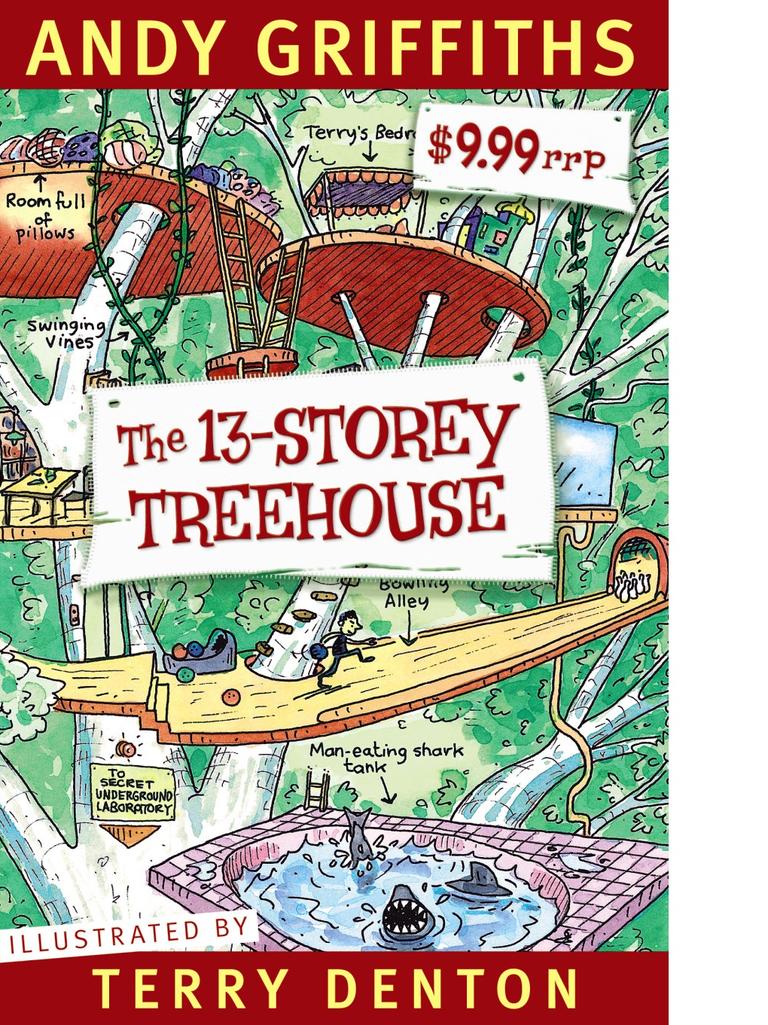
Griffiths said our Covid-19 lockdown experiences were also a “rich source of story ideas”.
“They have given us some unique close contact experiences with our family members. It could be ‘all the things my brother did to annoy me during lockdown’,” he said.
“Look in your own backyard, that’s a very good place to start.”
GLOSSARY
- exclusive: belonging or restricted to just one person or group
- nonsensical: making no sense
- surreal: strange, not seeming real
EXTRA READING
Enter the 2022 Short Story Competition
Author’s golden rules of story planning
Six secrets of a winning short story
QUICK QUIZ
- Who is the author of the Treehouse series of books?
- How many copies of the top six Treehouse books have been sold in the past decade?
- Name one of the David Walliams book on the top 50 list.
- What two characteristics do readers have, according to Jeff Kinney?
- Rather than writing a completely imaginary story, Andy Griffiths recommends kids do what?
LISTEN TO THIS STORY
CLASSROOM ACTIVITIES
1. Your favourite book review
What is your favourite kids’ book? Write a review of it. Include a brief outline of what the book is about, without giving away the whole storyline (you still want people who read your review to be surprised when they read the book).
Explain why you enjoyed the book so much and why others should read it.
Time: allow 30 minutes to complete this activity
Curriculum Links: English
2. Extension
Andy Griffiths suggests that you “look in your own backyard” for a place to start your own story ideas. Draw a picture of your backyard or a room in your home with at least five crazy or unusual things going on, that you could use to inspire a future short story.
Time: allow 20 minutes to complete this activity
Curriculum Links: English; The Arts
VCOP ACTIVITY
I’ve always wanted to know
If you had the opportunity to talk to one of the authors in this story, what would you ask them?
Come up with five different questions. Challenge yourself to use different question stems (question opener words) to write your questions, and don’t forget to end with a question mark.
